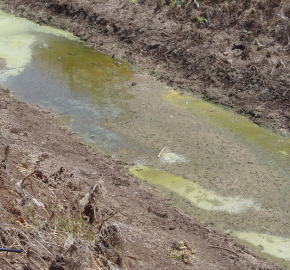WildFish reminds Powys County Council of its duty to assess pollution risk before granting planning permission for new chicken sheds on river Wye

WildFish has written to Powys County Council reminding them that if they approve planning permission for new chicken sheds on the River Wye, without properly assessing the pollution risk and the resulting environmental impacts, planning decisions could face judicial review.
For several years, WildFish has warned of the failure to regulate the poultry farming industry in the Wye catchment – a Special Area of Conservation (SAC). This letter reminds the local planning authority that to comply with the law, they must assess the impact of manure spreading on the river before granting planning permission. They cannot simply ignore concerns about pollution from manure being washed into the river.
Fish Legal launched a legal challenge in 2020 against Powys County Council because it had not considered the impact of spreading digestate on the river. But at appeal, the judge said the council did not need to worry about the destination of digestate spread on fields, as this could be dealt with by the environmental regulator, Natural Resources Wales.
Conversely, last month the Supreme Court ruled that the “downstream” environmental effects of the poultry farming industry, including those produced off-site such as manure and digestate spreading, do need to be fully considered in an environmental impact assessment (R (oa) Finch v Surrey County Council and others [2024] UKSC 20).
Powys County Council cannot simply wash their hands of potential pollution from manure and digestate spreading created by the poultry farming industry and assume it is someone else’s problem.
Justin Neal
Solicitor at WildFish
Justin continued: “Following the Supreme Court ruling, it is clear that the local planning authority need to take into account the effects of the manure and digestate byproducts of poultry farming in deciding whether to grant planning permission. They also need to make sure that all effects of the development are taken into account when they come to deciding whether to grant planning. The failure to do so is now clearly unlawful.”



